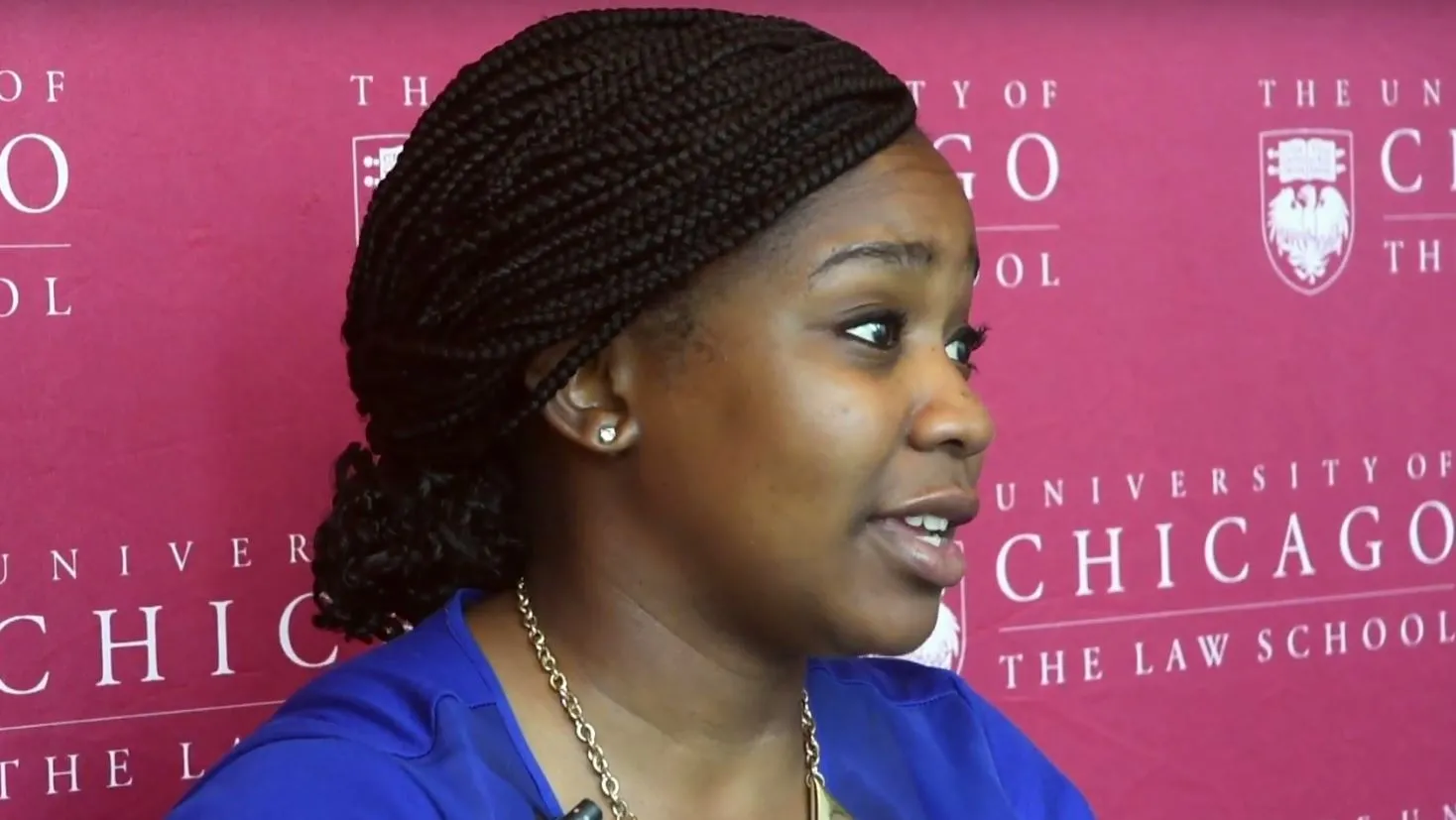My Chicago Law Moment: Michelle Mbekeani-Wiley, ’14 on the Connection between Financial Incentives and Police Accountability

In her day-to-day work, Michelle Mbekeani-Wiley, ’14, most often draws on two pieces of her Law School education—one experiential and one doctrinal.
The first—her experience on the Civil Rights and Police Accountability Clinic’s Youth/Police Project—seems obvious, given that Mbekeani-Wiley focuses on criminal justice reform and youth/police relations as a staff attorney at the Sargent Shriver National Center on Poverty Law.
The second is perhaps less so: the 1L Torts class she took with Saul Levmore, the William B. Graham Distinguished Service Professor of Law.
“Torts seems very different from police accountability, but actually they tie in to each other fairly perfectly,” Mbekeani-Wiley said. In Torts, she learned how financial incentives can be used as a form of enforcement—a strategy that factors into her policy work at the Shriver Center.
“I frequently think, how is this going to be implemented and enforced? What financial incentives can we put in place so the law enforces itself?” she said. “Even though Torts seems very distant from the public interest work that I’m doing now, those theories definitely come into play in the work that I do. [We ask ourselves]: Is the implementation practical? Who’s going to be in charge of implementing it and sustaining it and ensuring that the policy is efficient and sustainable?”
Often, this means identifying the stakeholders with the most power. In her recent report, Handcuffs in Hallways, an in-depth analysis on the use of Chicago Police Department officers within the Chicago Public Schools, Mbekeani-Wiley emphasized the need for the police and CPS to work together to establish systems of accountability and ensure that officers are adequately trained. “It really puts onus on both the police department and CPS to collaborate with each other on reform,” she said.
Mbekeani-Wiley’s work on the Youth/Police Project, which involved in-depth interviews with students Hyde Park Academy, taught her how critical it is to listen to the communities one is serving and taking the time to develop relationships. The project highlighted the how routine interactions with police can affect minority urban youth—and it led to an emotional, and well-attended, two-day conference that brought Mbekeani-Wiley back to the Law School the spring after her graduation.
“I really believe in listening to community stakeholders before making any policy recommendations,” she said. “I try to connect with community organizations that are in the trenches … and that is a method that I learned at the University of Chicago Law School. You need to engage with the community if you want to find solutions to the issues that they are encountering. … And once you’ve identified the issues and collaborated with the community on solutions, how do you make those solutions sustainable? And that’s where the doctrinal information comes in to play. If you want reform, reform needs to be funded.”
The Law School also made it easy and natural for Mbekeani-Wiley to connect her clinical experience and doctrinal study. This has long been an emphasis at the school, where clinical and doctrinal faculty often collaborate and one type of education informs the other.
“That’s the beauty of the law – it’s not siloed,” she said. “Things mingle with each other.”
My Chicago Law Moment is a series highlighting the Law School ideas, experiences, and approaches that have impacted our students and alumni. Video produced by Will Anderson.
